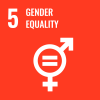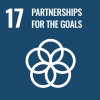IOM Nepal Formalizes MBHR Asia to Enhance Migrant Workers Rights and Ethical Recruitment
Mr Dandu Raj Ghimire, Director General of Department of Foreign Employment (DoFE) addresses the participants in his opening remarks. Photo: IOM
Kathmandu, 25 July – With 2.2 million Nepalese living abroad, mostly for employment, labour migration is a key aspect of Nepal’s socioeconomic landscape and crucial for its development. However, as outlined in the 2030 Agenda for Sustainable Development and the Global Compact for Safe, Orderly and Regular Migration (GCM), the full potential of migration can only be realized if the labour and human rights of migrants are respected. Unfortunately, Nepalese migrant workers often face exploitative recruitment practices, abuses and irregular migration, putting them at risk of forced labour or human trafficking.
The Government of Nepal (GoN) has recently launched the National Action Plan on Business and Human Rights (NAP+BHR) 2024 –2028, coinciding with the International Organization for Migration (IOM)’s Migration, Business and Human Rights Programme in Asia (MBHR Asia), funded by the European Union (EU) and the Government of Sweden. This flagship regional initiative aims to promote corporate responsibility and full respect of migrant workers’ rights in global supply chains, focusing on key labour migration corridors in Asia, including Cambodia, Indonesia, Malaysia, Nepal, the Philippines, Thailand and Viet Nam. The programme will support the implementation of the NAP+BHR.
IOM, the EU, the Ministry of Labour, Employment and Social Security (MoLESS), Nepal Association of Foreign Employment Agencies (NAFEA) and the Civil Society. Organizations (CSOs) gathered in Kathmandu on 25th July 2024 to officially formalize the MBHR Asia. The multi-stakeholder event featured representatives from the EU, MoLESS, other government entities, civil society, media and National Human Rights Commission (NHRC).
Welcoming the participants, IOM Nepal Head of Migration and Development Department and Officer in Charge, Mr Prajwal Sharma, highlighted provisions of migration and development in the 16th Plan of Nepal. The 16th Plan promotes ethical recruitment, skills development and employer-pays principle. As a GCM champion country, Nepal’s effective implementation of the UN Guiding Principles on Business and Human Rights (UNGP+BHR) is crucial to ensure regular migration pathways and advancing of the Sustainable Development Goals (SDGs). He also mentioned to the government's initiative to draft a comprehensive labour migration policy, as a crucial step towards addressing migration with a 360-degree approach.
"This programme is part of the EU’s support to Nepal and of the Union’s commitment to promote human rights globally” said Ms Eloisa Astudillo Fernandez, Deputy Head of Cooperation of the EU Delegation to Nepal. Ms Fernandez also commended the Government’s efforts in promoting human rights in business, as evidenced by the NAP + BHR 2024 –2028, which represents “a good framework for engaging stakeholders in working towards fair recruitment practices.” She added that the new EU Directive on Corporate Sustainability and Due Diligence would ensure that products entering Europe are produced in compliance with human rights principles throughout the entire value chain.
Mr Dandu Raj Ghimire, Director General of Department of Foreign Employment (DoFE) emphasized the importance of multistakeholder engagement for the promotion of sound migration governance and the need for the Government to support the private sector in regulating labour migration.
“As a GCM champion country, we have taken significant steps to ensure migrant workers’ access to decent work fair and ensure ethical recruitment. IOM’s MBHR Asia is a timely contribution to our initiatives promoting Nepalese migrant workers’ rights” stated Mr. Nischal Raj Pandey, Joint Secretary of the MoLESS.
Ms Purnima Limbu Palunga, National Programme Officer at IOM Nepal, introduced the MBHR Asia to the stakeholders, emphasizing the initiative’s objective of enhancing regular labour mobility pathways through ethical recruitment and decent work.
This initiative is based on the three core Pillars of UNGPs: Protect, Respect and Remedy. IOM will partner with governments, businesses and civil society to accelerate UNGP commitments and promote integrity, transparency and human dignity in migrant recruitment and employment.
Closing the event, Mr Kamal Thapa Kshetri, Under Secretary of the NHRC, emphasized that MBHR Asia could foster accountability in the private sector for labour and human rights and reiterated NHRC’s commitment to engaging with migrant workers and its close collaboration with MoLESS to promote BHR.
The MBHR Asia will be pivotal in expanding the migration, business and human rights landscape in Nepal and beyond. It aims to enhance labour migration governance, improve corporate due diligence and enhance access to state-based and non-state-based grievance mechanisms and remedy to migrant workers and families.
***
For more information, please contact:
Ms Purnima Limbu Palunga, National Programme Officer, email: plpalunga@iom.int
***
The Migration, Business and Human Rights (MBHR) Programme in Asia is a five-year regional programme and is funded by the European Union and Sweden. The programme will run from 2024-2028 across Cambodia, Malaysia, Nepal, Indonesia, the Philippines, Thailand and Viet Nam.

























